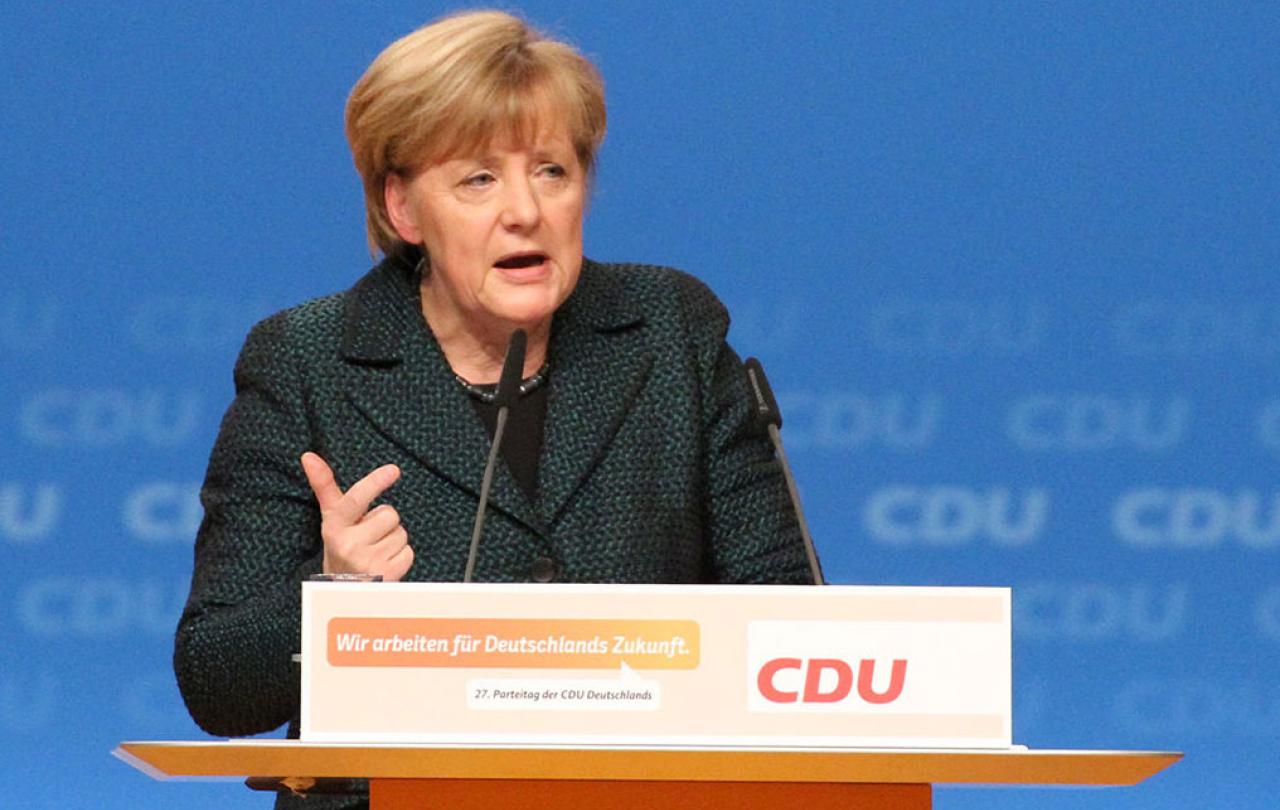
When I’m accused of being a “leftie” in the predominantly Conservative area of East Sussex in which we live – though there are signs of automatic Tory support fragmenting – I usually reply that actually I’m a Christian Democrat.
At one level, this is a case of simple literal determinism: I’m a Christian and a democrat. Tick. But Christian Democracy is more complicated than that – not least because its continental European iteration was built on the re-building of a pan-national concord after the Second World War and the establishment of the European Union, a narrative from which the UK has largely excluded itself.
Former German chancellor Angela Merkel’s Christian Democratic Union (CDU) was a paragon of this ideology, growing out of the re-unification of Germany that began in 1989. It’s unlikely that her political ideology would have prospered in Britain.
The so-called three Fs of social conservatism are family, faith and flag. I sign up to the first two. But not the nationalism of the third. Here, I’m squarely in Christian Democrat territory.
It’s that ideology that appeals to me. Essentially, Christian Democracy is rooted in an attempt, since the 19th century, to reconcile Catholic social teaching with democracy and capitalism (tick, again). In that context, it combines left-wing economics with social conservatism.
I awoke with a start some years ago with the realisation that I’m socially conservative. My divergence from my socially liberal friends had been so gradual as to be imperceptible. But here I stand, I can do no other.
I oppose assisted suicide – a liberal standard – not, as I’m accused, because of some vague commitment to the sanctity of life but because I believe there’s extreme moral jeopardy in the state endorsing in its legislature that some lives are not worth living. I believe that same-sex unions should be blessed in Church (and I have done so), but I also believe that’s a definitional difference from marriage as celebrated in church.
The hard right uses woke as a term of abuse when all it really means to many of us is being "awake" or "quite nice". By this ascription, for instance, someone who holds that refugees should be treated with dignity can be described as woke. But I also believe that a male cannot become a woman – and be recognised by the state as such – simply by declaring that he is so. Nor do I think that history can be judged by contemporary mmores,and I find cancel culture abhorrent. That makes me anti-woke in some circles.
By these criteria, I’m socially conservative. So be it. The so-called three Fs of social conservatism are family, faith and flag. I sign up to the first two. But not the nationalism of the third. Here, I’m squarely in Christian Democrat territory.
As for a social economy, I believe in a state big enough to provide free health care at the point of delivery, education as a right and not a privilege and a welfare state robust enough to support the marginalised and vulnerable – in scriptural terms, “the poor”. Again, that’s Christian Democracy, at least as Merkel might understand it.
But ideologies need ideologues and Christian Democracy’s problem in the UK is that we have not too few, but too many and too varied.
All of which will guide my vote this year’s general election. There won’t be a CDU on the ballot paper and, even if there were, our ridiculous first-past-the-post electoral system mocks our democracy. When the Liberal Democrats struggle to maintain a toehold in parliament, despite being a widely credible alternative in many Tory seats, what chance for a more esoteric political initiative?
An argument may be mounted that with the Church of England established in law, 26 bishops sitting in the legislature of the House of Lords as a consequence, and the head of state as the Church’s supreme governor, Christian Democracy is already pretty well served in the UK.
Wisely, British Christian Democrats have endeavoured over the past three decades and more to be a movement within politics, rather than a political party (though no disrespect is intended here to the Christian People’s Alliance). This is Christian Democracy as an idea, rather than a voting option.
For this idea to have traction, it needs a political ideology, which may or may not be along the lines of the one I’ve adumbrated. But ideologies need ideologues and Christian Democracy’s problem in the UK is that we have not too few, but too many and too varied. So it may be as well to look to a contemporary historical leader of thought.
The nearest thing that European Christian Democrats have to a uniting figure is the French Catholic philosopher Jacques Maritain, who died in 1973. To read Maritain at length is to leave one breathless with anticipation for what could be.
An albeit dangerous summation of Maritain is that he calls the West to a “New Christendom” that defines the state not by Christian faith, but attempts to define our faith through a secular prism, to make it active in the public square.
I particularly like the way this is described by American theologian William T, Cavanagh: “[T]his means in effect that there is trash to be picked up, businesses to be run, wars to be fought. These things are not our ultimate end, but neither are they simply cut loose from any spiritual significance.”
If we’re able to unpack that sense of purpose, then just maybe we can approach an election with this unifying political slogan: Vote Christian Democrat.

